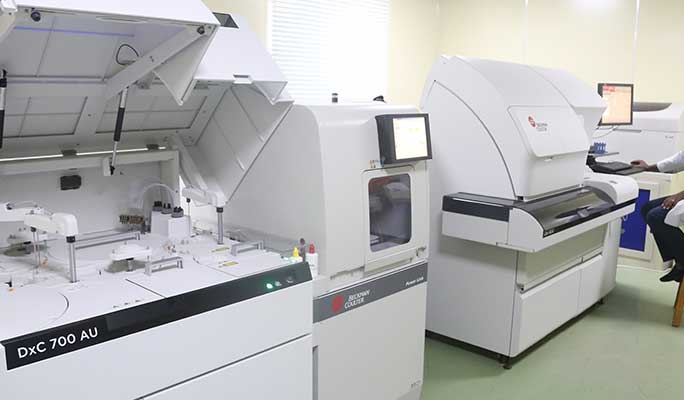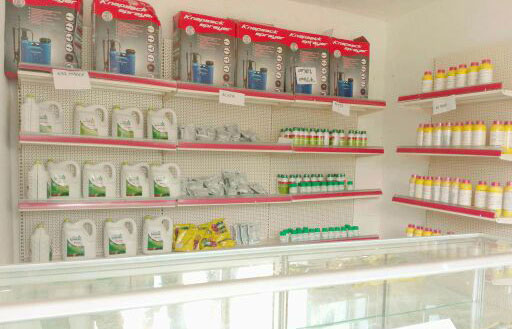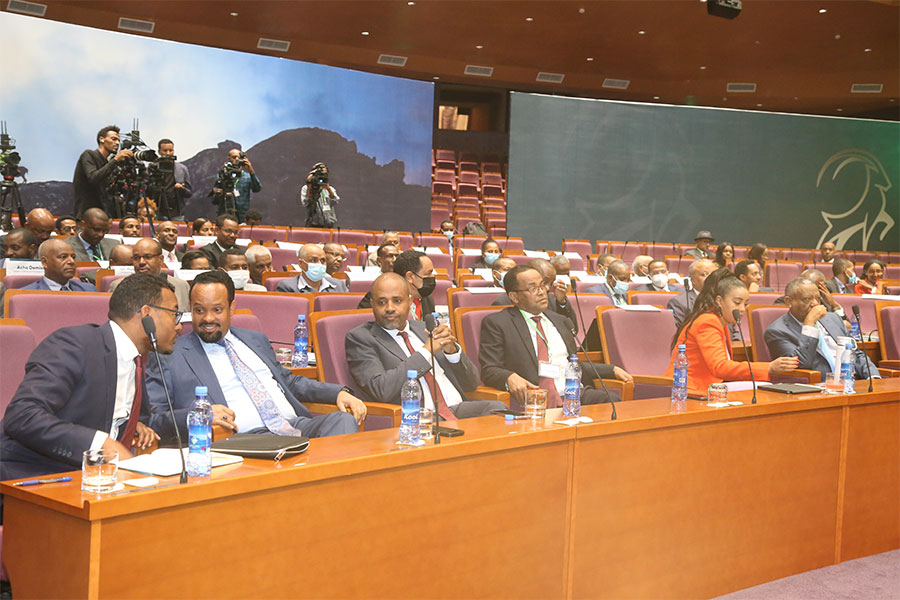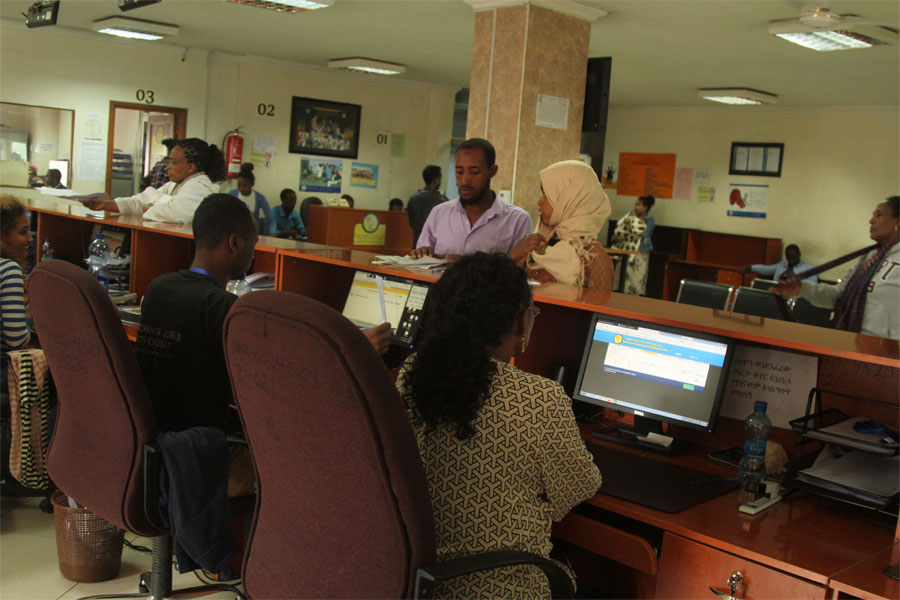
Jun 5 , 2021
By NEGA ZINABIE ( FORTUNE STAFF WRITER )
A marketplace geared towards micro, small and medium enterprises is set to begin construction next year in the Jemo area of Addis Abeba under the supervision of the Federal Job Creation & Food Security Agency. The construction of the marketplace, which will be erected on 3,393sqm of land, is expected to be finished in two years' time, slated to cost almost a quarter of a billion Br.
The Agency was granted the land by the Addis Abeba City Administration following a nod of approval from the Planning & Development Commission. So far, the architectural design, which was carried out by the Urban Development & Construction Agency, and basic works such as a soil study have been completed. The facility will serve as a year-round centre where enterprises from all over the country can promote and sell their products.
"The plan is to enable 500 micro, small and medium enterprises to promote their products at a time," said Bekele Mengistu, deputy director-general of the Job Creation & Food Security Agency, which is currently gearing up to table a proposal for the formation of an SME bank to alleviate the inaccessibility of finance for such businesses. "Enterprises will be selected based on criteria including their capital, business plan, profitability, job opportunity creation, and business management."
Though the classification varies from institution to institution, the Agency defines micro-enterprises as those that have a capital of less than 100,000 Br, small enterprises as those possessing between 100,000 Br and 1.5 million Br, and medium enterprises as those whose capitalisation is between 1.5 million Br up to 20 million Br.
Kidist Demeke, owner and namesake of a clothier she founded five years ago with a capital of 2,000 Br, finds the plan to build the marketplace encouraging.
"It can create a better environment to raise the profitability of different enterprises," she said, "but those that are far away from the marketplace will have to transport their products and this can be costly." She recommends that the authorities take this into account and make the necessary adjustments to minimise costs for enterprises like hers, which now has 200,000 Br in capital.
Limited access to markets and a lack of working premises, along with low access to finance and an erratic supply of raw materials, have been some of the major challenges faced by SMEs in Ethiopia, where a little over 110,000 micro and small enterprises were registered last year, providing job opportunities for close to 900,000 people, according to data obtained from the central bank.
While cities and zonal administrations regularly organise expos to create market opportunities for SMEs during holidays, just a month ago, the Agency had organised a national bazaar in which 182 enterprises participated, claiming to create market linkages worth three million Birr.
Wossenseged Asefa, an economist, sees the move by the Agency to construct a marketplace as a step in the right direction.
"It will create enterprise-people interrelationships and will enable people with low income to benefit from the availability of a wide range of products at competitive prices in addition to creating job opportunities," said the economist, while concurring with Kidist's views about transportation costs, adding that certain enterprises may be left out entirely due to difficulties in getting their products to the marketplace.
PUBLISHED ON
Jun 05,2021 [ VOL
22 , NO
1101]

Radar | Mar 06,2021


Fortune News | Jun 14,2020

Fortune News | Aug 17,2019

Fortune News | Jun 29,2019

Fortune News | Jun 25,2022

Fortune News | Dec 10,2018

Fortune News | Nov 13,2021

Fortune News | Apr 25,2020

Fortune News | Feb 18,2023

Dec 22 , 2024 . By TIZITA SHEWAFERAW
Charged with transforming colossal state-owned enterprises into modern and competitiv...

Aug 18 , 2024 . By AKSAH ITALO
Although predictable Yonas Zerihun's job in the ride-hailing service is not immune to...

Jul 28 , 2024 . By TIZITA SHEWAFERAW
Unhabitual, perhaps too many, Samuel Gebreyohannes, 38, used to occasionally enjoy a couple of beers at breakfast. However, he recently swit...

Jul 13 , 2024 . By AKSAH ITALO
Investors who rely on tractors, trucks, and field vehicles for commuting, transporting commodities, and f...

Jun 28 , 2025
Meseret Damtie, the assertive auditor general, has never been shy about naming names...

Jun 21 , 2025
A well-worn adage says, “Budget is not destiny, but it is direction.” Examining t...

Jun 14 , 2025
Yet again, the Horn of Africa is bracing for trouble. A region already frayed by wars...

Jun 7 , 2025
Few promises shine brighter in Addis Abeba than the pledge of a roof for every family...